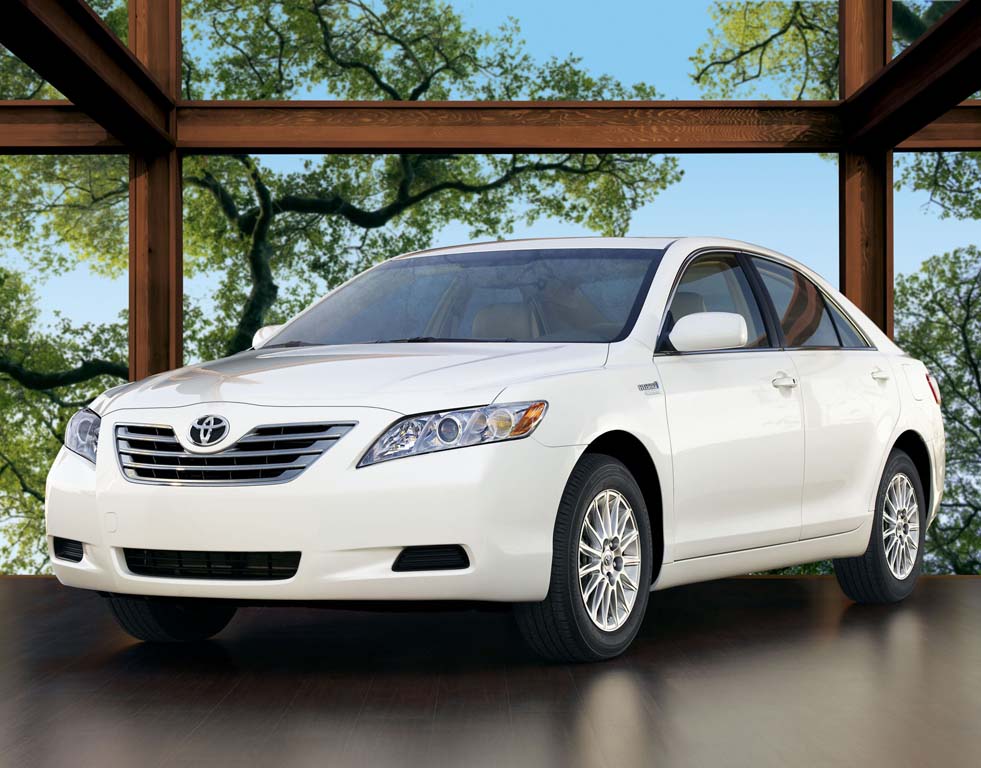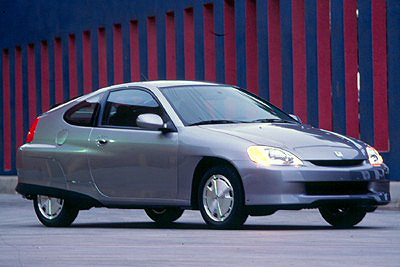It's a concern that comes up over and over: If I buy a hybrid car, won't I have to spend thousands of dollars to replace the battery pack in a few years?
The answer is, No. Not only are automakers required to warranty the high-voltage battery packs in hybrid-electric vehicles for 8 years/100,000 miles or 10 years/150,000 miles, depending on state, but now we have data to show that those packs don't get replaced any more often than any other part.
Older hybrids used as taxi cabs in cities like San Francisco have been retired with well over 300,000 miles on their battery packs, and no discernible problems or need for replacement.

2002 Honda Civic Hybrid
Specialized fenders?
But if battery worries can be laid to rest, what about the non-electric components? Things like, oh, fenders?
Concerns arose over hybrid repair costs when a study emerged last year from an insurance-claims analysis firm that calculated repairs to the Toyota Prius to cost about 8.4 percent more than equivalent repairs on other models.
Their conclusion was that the disparity reflected the fact that the Prius is a "dedicated hybrid," with a unique body, meaning that many of its parts are in scarce supply simply due to its sales. While it's now Toyota's third best-selling car, earlier Prius models (from 2000 to 2005 or so) sold in much lower numbers--meaning fewer cars in junkyards.

2007 Toyota Camry Hybrid 50th Anniversary Edition
Looking at hybrid variations of standard gasoline models, like the Toyota Camry Hybrid or the Honda Civic Hybrid, the study found used and aftermarket parts available in higher volumes. The study said those repairs cost only marginally more than non-hybrid models of the same car.
Cheaper insurance too
Because hybrid drivers are older than average--and less have lower recorded accident rates--insurance for hybrid cars is also cheaper than average. In an Insure.com survey last year, insurance averaged $1,300 for the Toyota Prius, against a national average of $1,871.
Other pluses to owning a hybrid: Use of some HOV Lanes with only a single occupant, preferential parking, and various other so-called "Prius perks." Though it's worth noting that 85,000 hybrid drivers in California will lose their HOV-Lane access next July, as that privilege is transferred to lower-emission plug-in hybrid and electric vehicles.

2000 Honda Insight
Payback problematic
The question of whether hybrids pay back their extra cost, however, remains a tough one. One study said only a single hybrid saved owners money on fuel costs. That would be the 2010 Mercedes-Benz S 400 Hybrid, which the maker has cleverly positioned as the least expensive member of the S-Class range in the U.S.
In the end, some hybrid owners buy them to save money, but for others, it's not about payback at all. A University of Wisconsin study found that the Number One reason Prius owners bought their cars was to make a statement that they're green.
In other words, they drive hybrids to demonstrate to society what values they hold. Just like HUMMER owners, really.













